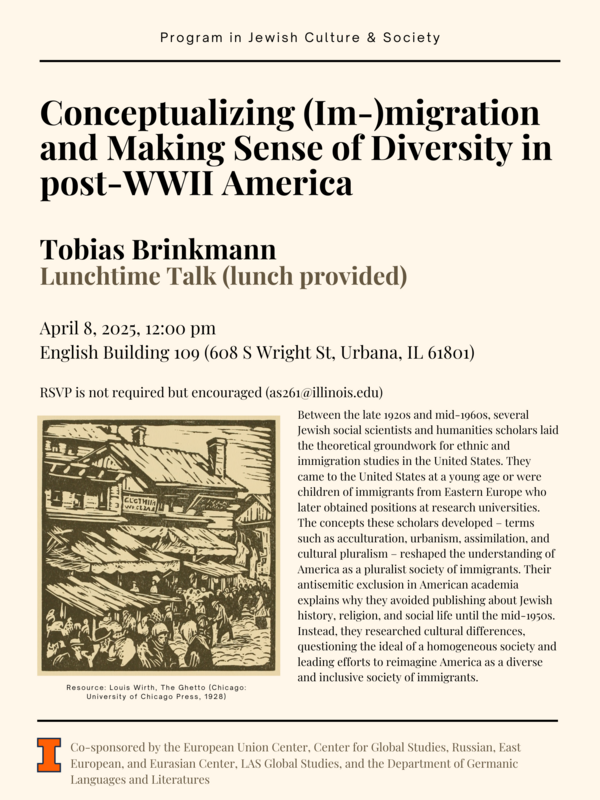Conceptualizing (Im-)migration and Making Sense of Diversity in post-WWII America

- Sponsor
- The Program in Jewish Culture and Society. Co-sponsored by the European Union Center, Center for Global Studies, Russian, East European, and Eurasian Center, LAS Global Studies, and the Department of Germanic Languages and Literatures
- Speaker
- Tobias Brinkmann
- Cost
- Free and open to the public
- Registration
- RSVP is not required but encouraged (as261@illinois.edu)
- Contact
- Anastasiia Strakhova
- as261@illinois.edu
- Views
- 133
Between the late 1920s and mid-1960s, several Jewish social scientists and humanities scholars laid the theoretical groundwork for ethnic and immigration studies in the United States. They came to the United States at a young age or were children of immigrants from Eastern Europe who later obtained positions at research universities. The concepts these scholars developed – terms such as acculturation, urbanism, assimilation, and cultural pluralism – reshaped the understanding of America as a pluralist society of immigrants. Their antisemitic exclusion in American academia explains why they avoided publishing about Jewish history, religion, and social life until the mid-1950s. Instead, they researched cultural differences, questioning the ideal of a homogeneous society and leading efforts to reimagine America as a diverse and inclusive society of immigrants.
Tobias Brinkmann is a Malvin E. and Lea P. Bank Associate Professor of Jewish Studies and History and a Director of the Jewish Studies Program at the Penn State University. His research focuses on Jewish migration within and from Eastern and Central Europe to North America after 1800 and its broader context (American immigration, history of refugees, migration in modern Europe, and beyond).
This event is supported in part by grant funding from the U.S. Department of Education’s Title VI grant program. The content of this event does not necessarily represent the policy of the U.S. Department of Education, and you should not assume endorsement by the Federal Government.